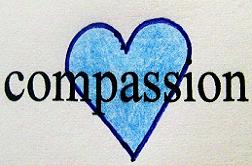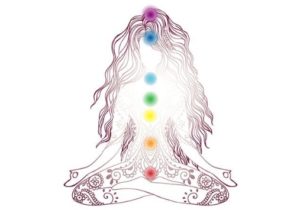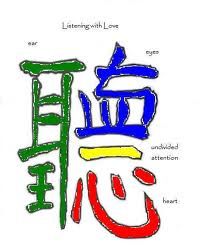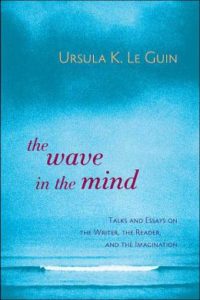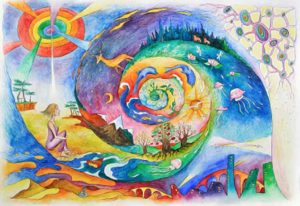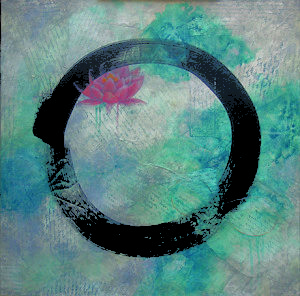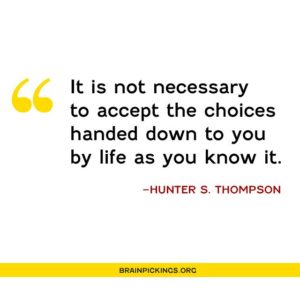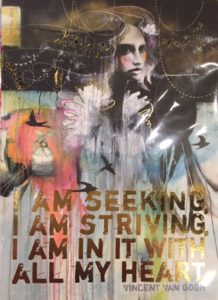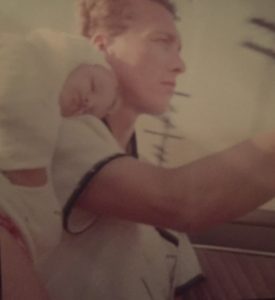The heart’s bold behavior of belief.
July 30, 2017“It is incumbent on all of us to constantly protect it and the only way to do that is to exercise it. We can always choose to love rather than hate, support rather than withdraw, speak out rather than stay silent, and stand up for what we believe rather than lay down to a collective pressure that does not reflect our belief. Every time we choose not to do this we give it away.” Rev. Dr. Kenn Gordon
ღ
“If we see a person who is being crushed by a rock, the goal is not to get under the rock and feel what they are feeling; it is to help remove the rock.” Dalai Lama/The Book of Joy/p. 259
ღ
“I know that when I speak this word for myself, there is a direct reaction toward me. I know that when I speak it for others, there is a direct reaction toward them. There is no doubt or uncertainty in my consciousness.” Rev. Dr. Marilyn Leo
ღ
‘When all you have is the truth, if you degrade that truth, then you have nothing. […] Either be forthright or be silent. Proffer examples, testimony of things that have happened. […] Boldness, bravery and intellectual fearlessness – these are the qualities (we) need if we are to storm heaven.’ Mitch Horowitz/Science of Mind-July, p. 16
ღ
“‘Oh, no,’ we exclaim as we stand directly in the path of Source.’ ‘I’m too old, too young, too inexperienced, not the right size, shape or color, not educated enough, not lovable enough.’ Only when we let go of this nonsense and get out of our own way can our blessings come.” -Anne Bock
Presence of grace.
July 28, 2017‘Enlightenment is the moment we realize that we are made of love. At that moment, all fear of living disappears. For grace comes to the heart when it realizes what it is made of and what it has risen from. In that moment, grace comforts us, that no matter the joy or pain along the way, we are already a part of where we are going. Enlightenment for a heart on Earth is the moment we accept that it is the loving that makes waves of us all, again and again and again.’
-Mark Nept/Book of Awakening
✿
Love is like a soft, warm light, warming the heart and glowing in every atom of being, radiating out into the farthest corners of our experience.
-Jack Addington
✿
Heaven is within woman. This is why Jesus prayed to this indwelling “I am” and said: “Our Father/Mother which art in Heaven,” and again he said: “The Kingdom of heaven is within you.”
-Science of Mind, p. 365
✿
‘This is the story of our human incarnation on the planet. We continue to die daily and to be reborn again. Surprisingly, yes, there is more to forgive, more to embrace about our own humanity and the humanity of our brothers and sisters who have chosen to walk with us. Our human incarnation is a holy walk when we choose to see it as such. It is a deliverance from the fears and doubts that may plague us in the beginning but which cannot withstand the onslaught of all-encompassing love of Gaia.
How grateful I am that throughout all of it, I have been so loved, so guided and so cared for. This is the promise for those who are courageous enough to stay the course. The expanded love you embrace with each resurrection never dies, and you are in love for the rest of your life.’
-Rev. Karen S. Wylie
✿
‘To practice the Presence of God is to awaken within us the Christ Consciousness. Christ is God in the soul of woman. The resurrection is the death of the belief that we are separated from God. For death is to the illusion alone and not to Reality God did not die. What happened was that woman awoke to life.’
-Science of Mind, p. 413
✿
‘Today I imbibe new ideas from the creativity of Gaia. My whole consciousness is alive and awake and aware. It is impregnated with Divine ideas and shall bear fruit after the image of the impression conceived within it and the Divine imprint made upon it. Today, then, I expect new ways of doing things; I expect to meet new people, form new friendships; I expect everything in my experience to enlarge and deepen and broaden. I expect more good that I have every experienced before, and today I expect to give out more, to increase my love for others. Today I expect from myself a more gently approach to life, a more kindly feeling, a more beneficent impulse. New thoughts, new ideas, new people, new situations, new ways of doing things, and a new influx of the Divine will make this day perfect, glad, and expressive limitless bounty from the storehouse of the Infinite Good.’
-Science of Mind
Mark Nepo/’The One Life We’re Given’
✿
A difficult paradox in the life of feeling is that when we are most sensitive, the heart is at its strongest. In such moments, our experience of deep love and suffering can feel intolerable. But this means the heart is working. Feeling such intense sensitivity is evidence of what a finely tuned instrument the heart is. Being so sensitive, life can feel unbearable even while the heart that guides us is going strong. Our challenge is to learn from both the sensitivity and the strength.
When strong enough to endure life’s irritations, the soul we carry can issue a pearl. If able to endure the pressures that life puts on us, the heart can be compressed into a small diamond. The word ‘diamond’, from the ancient Greek ‘adamas’, means ‘unbreakable.’ When most sensitive, we’re being compressed into what is unbreakable.
What’s unbreakable waits behind what’s unbearable, the way the quenching waters of life wait behind all the dams we build. And all my attempts to love have taught me that resilience waits in the very center for all that’s broken to be swept away in order to reveal what can’t be broken. Though the process of shedding feels unbearable, we have to endure this in order to uncover what is lasting and true.
Inevitably, crossing into life for love is what saves us. At unexpected times, our care leads us to dive into the world to save something we love by holding it close to our heart.
We resist this process of being irritated into a pearl, of being pressurized into a diamond. Yet each of us has to feel our way into the authenticity of a self from which to meet others and the world, only to be opened beyond the defines of a single self, so we can be renewed and vitalized by what we have in common. For what is unbearable is acutely personal, which when endured leads us to the seed of what is universal, which is unbreakable. When we can earn the presence of being completely ourselves we join a lineage of those who were completely themselves. Feeling our way into this kinship lets us feel the presence of souls across time.
What feels unbearable is how life carves us into a work of art that is never finished. When in difficult experiences, we fear they will never end. When in wonderful experiences, we fear they will end. But there’s no arrival, only inhabiting the journey, alone and together. The cycle of life and our engagement in it never stays the same. It rises and falls. It compresses and expands. And staying committed to this roller coaster that spins us upside down is how we experience all of life and all of time through the depth of our own feeling.
When I can inhabit the fullness of my own humanity, I reach the bottom of my personality, and through the thoroughness of living the one life I have, I touch into the well of all humanity. It’s there that resilience lives. And feeling what is mine to feel to the best of my ability enables me to feel the swell of everyone who ever lived. It’s there that I know in my bones that I am not alone. It’s there that I am buoyed and uplifted by the One Eternal Heart we are all a part of.
It’s as if the heart is a wick and the soul is its flame, and the burn of the soul feeding off the air of the world feels unbearable as it shapes us. But as long as it burns, we’re alive and unbreakable.
✿
Emerson Collective
https://www.theatlantic.com/amp/article/535215/
David G. Bradley, the chairman and owner of Atlantic Media, is announcing this morning that he is selling a majority stake in The Atlantic to Emerson Collective, an organization led by philanthropist and investor Laurene Powell Jobs. Bradley will retain a minority stake in The Atlantic and will continue as chairman and operating partner for at least three to five years. In a letter to his staff, Bradley wrote that Emerson Collective will most likely assume full ownership of The Atlantic within five years.
Bradley, who bought The Atlantic in 1999 for $10 million from Mortimer Zuckerman, is credited with transforming the Boston-based monthly magazine of politics, arts, and letters into a profitable digital-journalism and live-events company of global reach, even while continuing to publish The Atlantic’s award-winning print magazine, which was born four years before the Civil War. “Against the odds, The Atlantic is prospering,” Bradley wrote in his memo. “While I will stay at the helm some years, the most consequential decision of my career now is behind me: Who next will take stewardship of this 160-year-old national treasure? To me, the answer, in the form of Laurene, feels incomparably right.”
[…]
In his statement, Bradley said that Powell Jobs will most likely visit the Washington and New York offices of The Atlantic in September. Bradley closed his note to the staff by saying, “What I loved about Laurene from the first is that her confidence was forged on a different coast.” He added, “And, if anything, her ambition is greater than my own.” Making reference to the generally bleak commercial forecast for journalism in the United States, he wrote, “Let’s make it our work to prove the wisdom of our era wrong. And when my time comes to leave, that would be a happy note on which to say ‘good-bye.’”
︶⁀°• •° ⁀︶
In one soul, in your soul, there are resources for the world.
emersoncollective.com
Our Mission
A LETTER FROM LAURENE POWELL JOBS
With those startling words, Ralph Waldo Emerson enlarged our conception of the value of a human life. I read his simple declaration about the reach of human capability as a statement of fact: there really is within each of us the potential to improve the world around us. But Emerson’s line is not only a description, it is also an imperative: while all of us possess this transformative potential, too many of us don’t get the chance to fulfill it — which means that we all have work to do.
At Emerson Collective, this is what drives us every day. If we’ve helped someone transcend the limits of circumstance and chart a new course for themselves and their families, we know we’re fulfilling our mission. Like our namesake, we believe deeply in self-reliance; but we recognize that the road to self-reliance sometimes leads through reliance on others. We trust that hard work and determination can make anything possible, but opportunities for hard work and determination must be found and even created.
For people trapped in the quagmire of poverty and disenfranchisement, a strong will to overcome the odds is rarely sufficient to beat them. For the 22 percent of children born into poor neighborhoods in the U.S., hard work will not likely be enough to overcome the obstacles they will face, including those that remain invisible to outsiders. For students in challenging environments—where schools are chronically short of funds, where advanced classes in high school are non-existent, where expectations are often low and mentors are few—force of will alone cannot ensure a college education and a bright future. And for families forced into the shadows by a dysfunctional immigration system, perseverance cannot secure legal status and equal rights.
Qualities of character, in other words, must be supplemented and supported by policies and inspirations. These lives, these communities, are gardens of promise, but they need water in order to flourish.
Many years ago, I visited a nearby high school where students were working to defy the odds and do something very difficult: to become the first in their families to earn a college degree. They had the same dreams and talents as students from neighboring communities, but faced far more daunting obstacles. As the first to apply to college, the first to attend and to graduate, and the first to embark on a professional career, they faced, at every stage, uncharted territory.
It takes a unique brand of boldness to envision—and pursue—a future so different from the world that surrounds you. These students possessed courage and drive, but lacked the gateways to achieve their dreams—this struck me as a great injustice. It inspired me to launch a program called College Track—which has, to date, guided and supported thousands of students on their quest to earn college degrees, most of whom are the first in their family to reach this pivotal milestone.
Today in the United States, with few exceptions, where a person is born determines how far he or she can go in life. Among developed countries, the U.S. ranks second to last in economic and social mobility. This is shameful. It wasn’t always this way—and it doesn’t have to stay this way. This is not how we want our country to work.
This imperative underpins both the moral and practical mission of our work at Emerson Collective: we are idealists with our feet on the ground. Students can’t become self-reliant adults unless we give them an excellent education and a pathway cleared of obstacles. Immigrants can’t contribute their fullest to our communities, can’t live open and free and productive lives, unless they are liberated from the fear of detention and deportation. Complex systemic failures require flexible approaches, new models, and improved public policy. Every day with new ideas, true numbers, and smart practices, we at Emerson Collective do our part to advance these solutions. We do so in partnership with innovative thinkers, entrepreneurs, and organizations — with the broad community of concern and solidarity that we seek to foster.
Our basic belief, as Emerson taught, is that we are doubly obligated: we must rely on ourselves and we must rely on each other. By helping individuals to achieve their dreams, we unleash the full force of the world’s most powerful resource: human potential.

Laurene Powell Jobs
Listening between the lines.
“Words are events, they do things, change things. They transform both speaker and hearer; they feed energy back and forth and amplify it. They feed understanding or emotion back and forth and amplify it.”
-Ursula K. Le Guin
Maria Popova/Brainpickings
But the magic of human communication, Le Guin observes, is that something other than mere information is being transmitted — something more intangible yet more real:
In most cases of people actually talking to one another, human communication cannot be reduced to information. The message not only involves, it is, a relationship between speaker and hearer. The medium in which the message is embedded is immensely complex, infinitely more than a code: it is a language, a function of a society, a culture, in which the language, the speaker, and the hearer are all embedded.
Paralleling Hannah Arendt’s assertion that “nothing and nobody exists in this world whose very being does not presuppose a spectator,” Le Guin points out that all speech invariably presupposes a listener:
In human conversation, in live, actual communication between or among human beings, everything “transmitted” — everything said — is shaped as it is spoken by actual or anticipated response.
Live, face-to-face human communication is intersubjective. Intersubjectivity involves a great deal more than the machine-mediated type of stimulus-response currently called “interactive.” It is not stimulus-response at all, not a mechanical alternation of precoded sending and receiving. Intersubjectivity is mutual. It is a continuous interchange between two consciousnesses. Instead of an alternation of roles between box A and box B, between active subject and passive object, it is a continuous intersubjectivity that goes both ways all the time.
Listening is not a reaction, it is a connection. Listening to a conversation or a story, we don’t so much respond as join in — become part of the action.
[…]
When you can and do entrain, you are synchronising with the people you’re talking with, physically getting in time and tune with them. No wonder speech is so strong a bond, so powerful in forming community.
[…]
The living response has enabled that voice to speak. Teller and listener, each fulfills the other’s expectations. The living tongue that tells the word, the living ear that hears it, bind and bond us in the communion we long for in the silence of our inner solitude.
Whatever is true.
July 26, 2017“When you give your attention to anything, you are building that thing into your consciousness, for good or evil. Free your mind of negativity. Rather build into your consciousness what you wish to see in your life. Recognize that you’ve been unconsciously creating all along and decide now that you will create only love, joy, prosperity, health, happiness and all the good things readily available to all of us. Build in mind the house you want to live in joyously ever after. It is your choice. Nothing is stopping you except your excuses for why it’s not possible.[…] Before the house is built, the architect draws the plans.”
Rev. Karen S. Wylie
Science of Mind
“…curiosity, persistence and hard work.”
Einstein, the epitome of a genius, clearly had curiosity, character and determination. He struggled against rejection in early life but was undeterred. Did he think he was a genius or even gifted? No. He once wrote: “It’s not that I’m so smart, it’s just that I stay with problems longer. Most people say that it is the intellect which makes a great scientist. They are wrong: it is character.”
-Wendy Berliner/The Guardian
https://www.theguardian.com/education/2017/jul/25/no-such-thing-as-a-gifted-child-einstein-iq
Cultivating community.
July 25, 2017“I commit to cultivating community by finding kindred spirits along the path, soul friends with whom I can share my deepest longings, and mentors who can offer guidance and wisdom for the journey.”
#3/The Monk Manifesto
︶⁀°• •° ⁀︶
“It is for [us] to understand that nothing happens as a punishment but rather as a lesson. It is our birthright that we should learn and grow from life. It doesn’t matter what the circumstance; look for the spiritual truth. Look for the light behind every bit of darkness. We are here to learn and grow and become. There are no accidents. When we realize that everything is happening for our spiritual growth, we can ask, ‘What am I to learn from this?’ ‘What possible good is in this situation?'”
-Science of Mind
︶⁀°• •° ⁀︶
“So much of the time we think our good is somewhere down the line, that we will be ‘king our purpose’ at some time in the future. Well, surprise. You are living your purpose right now – each word out of your mouth, each action you take.”
-Rev. Karen S. Wylie
︶⁀°• •° ⁀︶
Alfonso Montuori, California Institute of Integral Studies:
“According to neuroscientist Anil Seth, we’re all hallucinating all the time; when we agree about our hallucinations, we call it “reality.”
Neuroscientist explains how your brain hallucinates your conscious reality:
(Because it’s Eddie and Roger.)
Pearl Jam’s Eddie Vedder Performs Pink Floyd’s ‘Comfortably Numb’ with Roger Waters: Watch
Ubuntu.
July 22, 2017I am because you are, you are because I am.
It is something that I have always believed in that in the ignited space of our deepest suffering, in the release of our deepest fears, in the familiar peace of our deepest joys, we are each other. I have been finding it in every path, in every way … in Martin Buber’s sense of I-Thou, where only in keeping what-is-between-us real can God appear … in the gift of Jesus, where two or more of you come together, there I am … in the one compassion of Buddha … in the numinous love that ancient stones manage if we are still enough to bow to them. Ubuntu … I am because you are, even in how we live off the breath of plants, you are because I am, even in how plants live off our exhalations.
We need each other to be complete.
-Mark Nepo’s, The Book of Awakening
Community.
“Piety is something you do alone,” he says. “True freedom, spirituality, can only be achieved in community.”
-Martin Sheen
On Being with Krista Tippett
6.22.17
“…I was searching for that elusive thing that all of us search for. Most of the time we’re not even conscious of it, but we’re searching for ourselves in an authentic way. We want to recognize the person we see in the mirror, and embrace that person with all the brokenness and lackluster, all the things that only we are aware of in the depths of our being.”
Gravity.
July 21, 2017‘The greatest gift is to give people your enlightenment, to share it.’
-Buddha
To care for another person – the reason we’re here.
July 20, 2017‘It’s a true story about caring and compassion, which we need more of today. [….] We’re all in uncharted territory right now.’
Yes, it’s about saving a bird’s life. But it’s about so much more, as depicted so beautifully in this video. ‘To care for one another is the reason we are here’ is the lyric that sums it up for me. The world has gone mad, and the simple things like love, compassion and caring have been overshadowed by hate and greed. This video shows how important we are to each other whilst showing how much worse things could get if we are not careful of each other and the planet where we live.”
-Rocker Peter Frampton
His “Frampton Comes Alive’ album sold over 8-million copies in 1976, considered one of the best live LP’s recorded.
Presence of grace…and stardust.
July 18, 2017Love, friendship, creativity, pain, and loss are agents of grace, as are surprise, beauty, grief, and wonder.
When the soul expresses itself, we experience enlivened arcs of grace in which we feel the force of life that runs through everything. Anything that moves us to carry our soul out into the world is a catalyst of grace. In this way, love, friendship, creativity, pain, and loss are agents of grace. And while experience wears us down to what’s essential so the soul can stop being encased, it also takes daily effort to let our soul out and an open heart to the let the world in, so we can spark ourselves alive and finally be of use.
Like it or not, we’re opened by the hard, sweet journey of being human, until we’re sparked and work into a gateway for life-force.
The One Life We’re Given, by Mark Nepo
Perspectives on objective-less journalism.
From Maria Popova/Brainpickings
‘Fear & Loathing in Modern Media’
“There is no such thing as Objective Journalism. The phrase itself is a pompous contradiction in terms.” -Hunter S. Thompson
From 1973:
So much for Objective Journalism. Don’t bother to look for it here — not under any byline of mine; or anyone else I can think of. With the possible exception of things like box scores, race results, and stock market tabulations, there is no such thing as Objective Journalism. The phrase itself is a pompous contradiction in terms.
From 1997:
If you consider the great journalists in history, you don’t see too many objective journalists on that list. H. L. Mencken was not objective. Mike Royko, who just died. I. F. Stone was not objective. Mark Twain was not objective. I don’t quite understand this worship of objectivity in journalism. Now, just flat-out lying is different from being subjective.
Popover: ‘Flat-out lying, in fact, is something Thompson attributes to politicians whose profession he likens to a deadly addiction. In Better Than Sex: Confessions of a Political Junkie, the very title of which speaks to the analogy, he writes:’
Not everybody is comfortable with the idea that politics is a guilty addiction. But it is. They are addicts, and they are guilty and they do lie and cheat and steal — like all junkies. And when they get in a frenzy, they will sacrifice anything and anybody to feed their cruel and stupid habit, and there is no cure for it. That is addictive thinking. That is politics — especially in presidential campaigns. That is when the addicts seize the high ground. They care about nothing else. They are salmon, and they must spawn. They are addicts.
A prayer for today.
‘Infinite Spirit within me, Gaia, cause me to think and act kindly; constrain my mind to gentleness and peace; guide my thoughts into loving kindness and eternal forgivingness; and cause me in all my ways to follow the path of truth and justice. I judge no person and am judged by none. It is my sincere desire that everything I do or say or think will come into harmony with universal truth and justice. I judge no person and am judged by none. It is my sincere desire that everything I do or say or think will come into harmony with universal truth and peace, with love and joy. Consciously I let go of everything that is unkind and seek to so enter into communion with the Eternal Spirit that I shall reflect to my environment and manifest in all that I do the spirit of kindness, of justice, and of compassion.’
Loss.
July 15, 2017There has been so much loss in recent weeks, in my family, and our community. My dad passed on Thursday night, June 15th. In the four weeks since he transitioned beyond the veil of Earthly consciousness, I have connected with various posts and websites that have provided thoughts and suggestions for healing through the process of grief. I hope they will help you as they have me.
︶⁀°• •° ⁀︶
Victor Hugo’s last words.
[The Independent]
His belief in the necessity of turning one’s empathy with fellow man into real change was most succinctly put in his last words however, written as a note two days before his death from pneumonia:
“To love is to act.”
~
Ram Dass:
It is important, as we get older, to learn how to grieve. Although this may sound self-evident, experience has taught me that it is not. In a culture that emphasizes stoicism and forward movement, in which time is deemed “of the essence,” and there is little toleration for slowness, inwardness, and melancholy, grieving – a healthy, necessary aspect of life – is too often overlooked. As we get older, of course, and losses mount, the need for conscious grieving becomes more pronounced. Only by learning how to grieve can we hope to leave the past behind and come into the present moment.
~
Life is about loss and letting go. ‘…all life is entwined with loss.’
[The Guardian]
Tim Lott:
‘The most resonant truth about children is that they disappear. Slowly, gradually, but eventually. Children in that sense are clocks, marking the passage of time with each new stage of growth. To see a child disappear – or rather, to become aware in any acute way of their disappearance – is to become aware of losing something you have loved more than anything you have loved in your life before, or will again.
Watching our children grow is – in an odd, inverted way – like watching our parents grow old and die. If we mourn in both cases it is perhaps because we are also weeping for ourselves – for our own impermanence, for our own mortality. For we also mark time, less visibly, in our own bodies.
As our children grow, we are also mourning the passing of a role – of ourselves as protectors, indispensable, loved passionately with the need and rose-coloured tints only children and infatuated lovers can offer us.
Think of how these processes of mourning are recorded in song, from Slipping Through My Fingers All the Time (Abba), Brown Eyed Girl (Van Morrison) to the even more heartbreaking Turn Around. My favourite version, by Nanci Griffith, reduces me to tears (and that’s not just a casual expression – it really does make me weep). And yet I go back to the song again and again. Why? What are the tears for? And why do I court them?
They are tears, partly, for loss. As such, they are simply sentimental – or at least, unnecessary. Because all life is entwined with loss. Transience is what makes life beautiful and worth living. All that comes and goes away is the heart of beauty. Children are simply the most vivid and meaningful examples of evanescence.
So, there are many kinds of tears. Perhaps we weep at a sad song about children growing up partly because we perceive the process as tragic. But they may also be tears of the recognition of beauty, because this changing is profound, and brings us most closely into touch with the heart of life itself.
In any case, the idea that we are losing love as our children grow is not true. The love I feel for my two eldest daughters, in their 20s now, is undiminished with the passing of time. I don’t get to express it so much, and they don’t feel the need to. They are independent. And that is a job well done as far as I am concerned. Yet when I look at them sometimes, I feel exactly the same emotion I felt when they were barely walking, and helpless.
We do not lose our children – not unless we are very unlucky, or very bad parents, or they are very atypical children. If our desires to hold on to our children really took root, and were acted out, it would be a disaster. This is doubtless the fate of many over-parented children. Such children could not emotionally leave home, ever.
We must let go, and then let go and then let go. And eventually they, too, must let go, as their parents pass out of this life, at first gradually then entirely and finally. I have already “lost” my children many times – as babies, as toddlers, as infants. They are always being made anew – and yet are always, at some deep level, the same. Parallel changes are happening to me, too, if I am doing it right. That is, I am always losing my children only in the sense that I am always losing myself.
For if I am static as a fully grown adult, then I am doing something wrong. I am holding on to myself too tightly, just as some parents hold on to their children too tightly. Life, yes, is loss and letting go. But without that loss and letting go, it would be like a plastic flower. Indestructible, but ultimately valueless.‘
~
